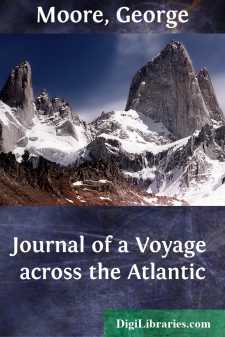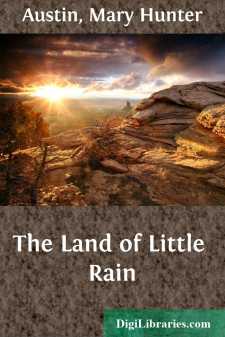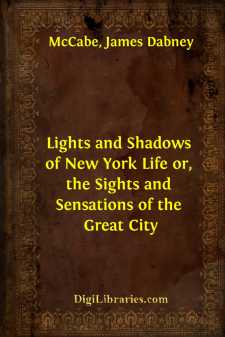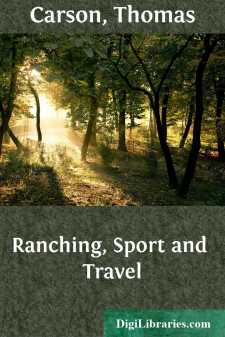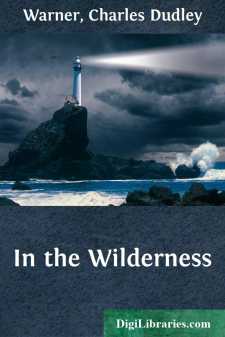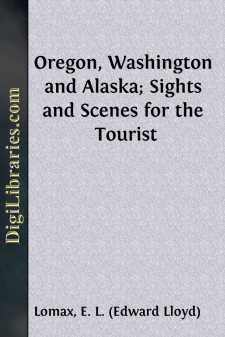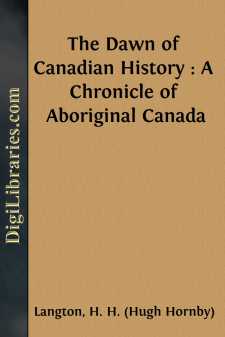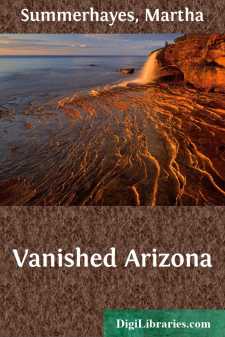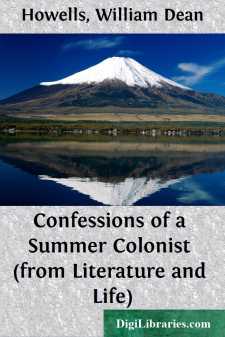Travel
- Africa 29
- Alaska 3
- Asia 46
- Australia & Oceania 26
- Canada 31
- Caribbean & West Indies 5
- Central America 1
- Europe 151
- General 39
- Maps & Road Atlases 1
- Mexico 10
- Middle East 18
- Polar Regions 7
- Reference 11
- Restaurants 1
- Russia 6
- South America 16
- United States
United States Books
Sort by:
by:
George Moore
PREFACE. Having a large circle of friends who feel interested in my American trip, the propriety of publishing my observations, to avoid going over the same ground again and again, was suggested by one of them—a hint with which I have complied. I can say, with the strictest truth, that I have not revised or altered any impression formed at the moment. Indeed, I never saw these Notes from the time...
more...
East away from the Sierras, south from Panamint and Amargosa, east and south many an uncounted mile, is the Country of Lost Borders. Ute, Paiute, Mojave, and Shoshone inhabit its frontiers, and as far into the heart of it as a man dare go. Not the law, but the land sets the limit. Desert is the name it wears upon the maps, but the Indian's is the better word. Desert is a loose term to indicate...
more...
PREFACE. It is the desire of every American to see New York, the largest and most wonderful city in the Union. To very many the city and its attractions are familiar, and the number of these persons is increased by thousands of new comers every year. A still greater number, however, will know the Great City only by the stories that reach them through their friends and the newspapers. They may...
more...
by:
Thomas Carson
CHAPTER I TEA PLANTING In Cachar—Apprenticeship—Tea Planting described—Polo—In Sylhet—Pilgrims at Sacred Pool—Wild Game—Amusements—Rainfall—Return to Cachar—Scottpore—Snakes—A Haunted Tree—Hill Tribes—Selecting a Location—Return to England. Having no inclination for the seclusion and drudgery of office work, determined to lead a country life of some kind or other, and even...
more...
by:
Charles Nordhoff
CHAPTER I. HONOLULU AND THE ISLAND OF OAHU. The Hawaiian group consists, as you will see on the map, of eleven islands, of which Hawaii is the largest and Molokini the smallest. The islands together contain about 6000 square miles; and Hawaii alone has an area of nearly 4000 square miles, Maui 620, Oahu (which contains Honolulu, the capital) 530, and Kauai 500. Lanai, Kahoolawe, Molokai, Niihau, Kaula,...
more...
I. HOW I KILLED A BEAR So many conflicting accounts have appeared about my casual encounter with an Adirondack bear last summer that in justice to the public, to myself, and to the bear, it is necessary to make a plain statement of the facts. Besides, it is so seldom I have occasion to kill a bear, that the celebration of the exploit may be excused. The encounter was unpremeditated on both sides. I was...
more...
SIGHTS AND SCENES INOREGON, WASHINGTON AND ALASKA. Oregon is a word derived from the Spanish, and means "wild thyme," the early explorers finding that herb growing there in great profusion. So far as we have any record Oregon seems to have been first visited by white men in 1775; Captain Cook coasted down its shores in 1778. Captain Gray, commanding the ship "Columbia," of Boston,...
more...
CHAPTER I We always speak of Canada as a new country. In one sense, of course, this is true. The settlement of Europeans on Canadian soil dates back only three hundred years. Civilization in Canada is but a thing of yesterday, and its written history, when placed beside the long millenniums of the recorded annals of European and Eastern peoples, seems but a little span. But there is another sense in...
more...
CHAPTER I. GERMANY AND THE ARMY The stalwart men of the Prussian army, the Lancers, the Dragoons, the Hussars, the clank of their sabres on the pavements, their brilliant uniforms, all made an impression upon my romantic mind, and I listened eagerly, in the quiet evenings, to tales of Hanover under King George, to stories of battles lost, and the entry of the Prussians into the old Residenz-stadt; the...
more...
In a certain sort fragile is written all over our colony; as far as the visible body of it is concerned it is inexpressibly perishable; a fire and a high wind could sweep it all away; and one of the most American of all American things is the least fitted among them to survive from the present to the future, and impart to it the significance of what may soon be a "portion and parcel" of our...
more...


